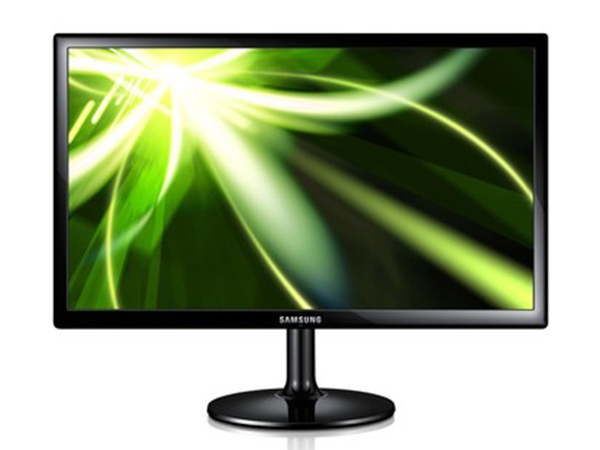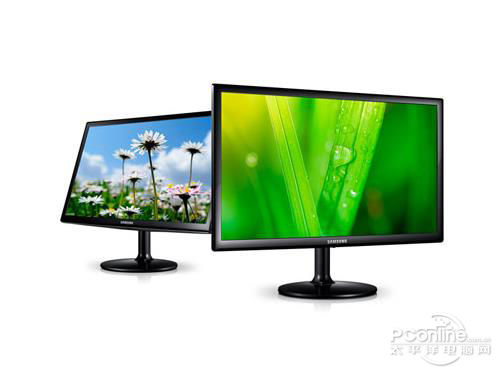How to set up an LCD monitor for optimal resolution
How to set the best resolution for LCD monitor
Standard resolution of LCD monitors of various sizes:
·15 inches: 1024*768
·17 inches: 1280*1024
·19 inches: 1280*1024
·20 inches: 1600*1200
·20-inch widescreen: 1680*1050
·23-inch widescreen: 1920*1200
Color temperature - related to living environment
Generally, monitors will have several preset color temperatures to choose from, common ones include 5400K, 6500K, and 9300K. The larger the number in front, the higher the color temperature and the cooler the picture. On the contrary, the smaller the number, the lower the color temperature, and the warmer the picture.
For us Chinese, we are more accustomed to setting the color temperature of the monitor to 9300K. This is because the average color temperature of China's scenery throughout the year is between 8000K and 9500K. Therefore, setting the color temperature of the monitor to 9300K can make the picture displayed on the screen closer to our real life.
But color temperature is not an absolute indicator. When we watch European and American blockbusters, we will find that the picture may be reddish and warmer. It will be better if we change the color temperature to 5000 or 6500K. This is because in Europe and America The average color temperature is lower than what we are used to, and during movie shooting, the color temperature of the camera is set at a lower level, causing us discomfort. Changing the color temperature of the monitor will solve this problem very well, which is why each monitor provides different color temperature options.
Brightness-appropriate brightness is best
The brightness setting of the LCD monitor often needs to be determined according to the user's preferences and the surrounding environment. For example, some people are accustomed to lower screen brightness so that their eyes will not be uncomfortable, while some people like to have a brighter screen for better picture performance. Therefore, you can set the brightness according to your own usage habits.
In what ways does the surrounding environment affect the brightness of the display? Maybe everyone has encountered a similar situation. Late at night, when you turn off the lights in the room and look at the monitor screen, you will find that the screen is very dazzling. At this time, you must reduce the brightness to make the monitor "softer". And this is the impact of the environment on the brightness of the display. In a dark environment, you need to reduce the screen brightness, and in a bright environment (such as outdoors), you need to increase the screen brightness appropriately to ensure a clearer visual effect.
Contrast - the most error-prone indicator
High contrast can make the picture look clearer and more layered. But the contrast setting is also the indicator that is most likely to "leave people astray", because most people will take it for granted that the higher the contrast setting, the better, but in fact this is not the case, because when you increase the LCD monitor too much The contrast will cause the loss of details and color cast in bright parts of the picture, and the higher the contrast, the more serious this situation will be.
The reason for this is that when we adjust the contrast, the brightness will also increase at the same time. However, current LCD displays are not yet perfect in controlling the balance of brightness and contrast, which leads to the above-mentioned problems. Therefore, we need to be moderate when setting the contrast and not over-adjust it. This can prevent the brightness from being too high and affecting the visual experience.
So how to adjust the contrast to the maximum state and ensure that there is no loss of details in the picture? The simple way is to judge by visual inspection of the picture, find a picture you are familiar with (brighter), and then increase the contrast of the display. When the details in the bright part of the picture begin to disappear, you should not continue at this time. Improved contrast index.
Resolution——Standard resolution is clear
Resolution Need to say more? Maybe you think this is too childish, but when the author came to a friend's home, I found that her 17-inch LCD monitor was still working at a resolution of 1024*768. Only then did I think of those who are interested in computers and monitors. For users who are not familiar with it, some of the most basic concepts are the most important.
How to set the monitor resolution to make the picture clearer
Each LCD monitor has its optimal display resolution. In daily use, we cannot set the display resolution too high at will, because this will have a direct impact on the life of the LCD display. Therefore, we need to carefully select the appropriate resolution to ensure the stability and longevity of the display.

The pixels of the LCD display usually need to match the output points of the computer display card, so each specific LCD display has only one optimal display resolution, and this optimal resolution should also be the maximum resolution of the display. Rate.
For example, for a 17-inch LCD monitor, the maximum display resolution is generally 1280X1024. If we modify the display properties of the system at will and set the display resolution of the monitor to be smaller than the 1280X1024 parameter, then the display screen Two abnormal phenomena, extended display or centered display, may occur. This phenomenon may cause trouble to normal display operations. In serious cases, users will be unable to see clearly the text or image content displayed on the screen; when the user forcibly When the resolution of the monitor is set to exceed the standard of 1280X1024 (for example, this may be required when playing games), I believe that it will not take long for the LCD monitor to have a black screen or the monitor to fail to work.

In addition, when adjusting the display resolution of the LCD monitor, people also need to pay attention to the refresh frequency of the monitor, because the refresh frequency indicator and the display resolution indicator are linked to each other; under normal circumstances, when people adjust the LCD monitor When setting the refresh frequency, try not to set the value too high. If it is set relatively high, it will affect the display quality of the screen content. The ideal value for the refresh frequency should be between 60HZ-85HZ.
The above is the detailed content of How to set up an LCD monitor for optimal resolution. For more information, please follow other related articles on the PHP Chinese website!

Hot AI Tools

Undresser.AI Undress
AI-powered app for creating realistic nude photos

AI Clothes Remover
Online AI tool for removing clothes from photos.

Undress AI Tool
Undress images for free

Clothoff.io
AI clothes remover

AI Hentai Generator
Generate AI Hentai for free.

Hot Article

Hot Tools

Notepad++7.3.1
Easy-to-use and free code editor

SublimeText3 Chinese version
Chinese version, very easy to use

Zend Studio 13.0.1
Powerful PHP integrated development environment

Dreamweaver CS6
Visual web development tools

SublimeText3 Mac version
God-level code editing software (SublimeText3)

Hot Topics
 How to Solve Windows Error Code "INVALID_DATA_ACCESS_TRAP" (0x00000004)
Mar 11, 2025 am 11:26 AM
How to Solve Windows Error Code "INVALID_DATA_ACCESS_TRAP" (0x00000004)
Mar 11, 2025 am 11:26 AM
This article addresses the Windows "INVALID_DATA_ACCESS_TRAP" (0x00000004) error, a critical BSOD. It explores common causes like faulty drivers, hardware malfunctions (RAM, hard drive), software conflicts, overclocking, and malware. Trou
 ENE SYS Maintenance: Tips and Tricks to Keep Your System Running Smoothly
Mar 07, 2025 pm 03:09 PM
ENE SYS Maintenance: Tips and Tricks to Keep Your System Running Smoothly
Mar 07, 2025 pm 03:09 PM
This article provides practical tips for maintaining ENE SYS systems. It addresses common issues like overheating and data corruption, offering preventative measures such as regular cleaning, backups, and software updates. A tailored maintenance s
 How do I edit the Registry? (Warning: Use with caution!)
Mar 21, 2025 pm 07:46 PM
How do I edit the Registry? (Warning: Use with caution!)
Mar 21, 2025 pm 07:46 PM
Article discusses editing Windows Registry, precautions, backup methods, and potential issues from incorrect edits. Main issue: risks of system instability and data loss from improper changes.
 5 Common Mistakes to Avoid During ENE SYS Implementation
Mar 07, 2025 pm 03:11 PM
5 Common Mistakes to Avoid During ENE SYS Implementation
Mar 07, 2025 pm 03:11 PM
This article identifies five common pitfalls in ENE SYS implementation: insufficient planning, inadequate user training, improper data migration, neglecting security, and insufficient testing. These errors can lead to project delays, system failures
 Discover How to Fix Drive Health Warning in Windows Settings
Mar 19, 2025 am 11:10 AM
Discover How to Fix Drive Health Warning in Windows Settings
Mar 19, 2025 am 11:10 AM
What does the drive health warning in Windows Settings mean and what should you do when you receive the disk warning? Read this php.cn tutorial to get step-by-step instructions to cope with this situation.
 How do I manage services in Windows?
Mar 21, 2025 pm 07:52 PM
How do I manage services in Windows?
Mar 21, 2025 pm 07:52 PM
Article discusses managing Windows services for system health, including starting, stopping, restarting services, and best practices for stability.
 which application uses ene.sys
Mar 12, 2025 pm 01:25 PM
which application uses ene.sys
Mar 12, 2025 pm 01:25 PM
This article identifies ene.sys as a Realtek High Definition Audio driver component. It details its function in managing audio hardware, emphasizing its crucial role in audio functionality. The article also guides users on verifying its legitimacy
 why won't driver asio.sys load
Mar 10, 2025 pm 07:58 PM
why won't driver asio.sys load
Mar 10, 2025 pm 07:58 PM
This article addresses the failure of the Windows asio.sys audio driver. Common causes include corrupted system files, hardware/driver incompatibility, software conflicts, registry issues, and malware. Troubleshooting involves SFC scans, driver upda






